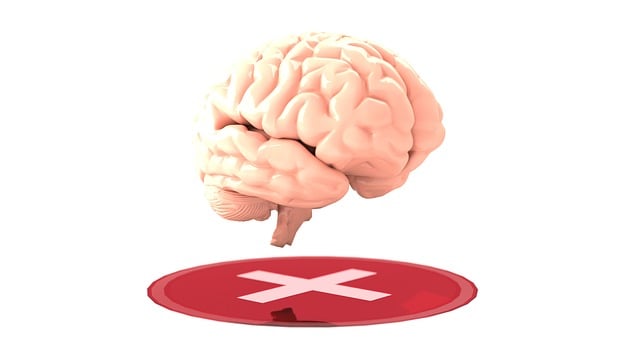Colorado Springs Eating Disorders Therapy emphasizes comprehensive risk assessment and harm minimization through personalized strategies, compassion cultivation, and innovative tools like mental wellness podcast series. By combining cognitive reframing, emotional regulation, self-compassion, and ongoing evaluation, this approach ensures tailored interventions that promote long-term recovery, stress management, and improved well-being in a supportive environment.
In the realm of Colorado Springs eating disorders therapy, risk assessment and harm minimization planning are paramount for ensuring client safety. This comprehensive guide explores crucial aspects of identifying potential hazards, implementing practical harm reduction strategies, and creating robust plans for effective risk management. By delving into these key components, therapists can navigate the therapeutic journey with confidence, fostering a safe and supportive environment tailored to Colorado Springs clients.
- Understanding Risk Assessment: Identifying Potential Hazards in Eating Disorders Therapy
- Harm Minimization Strategies: Practical Approaches for Colorado Springs Clinics
- Creating a Comprehensive Plan: Key Components for Effective Risk Management
- Continuous Evaluation and Adaptation: Ensuring Safety in the Therapeutic Journey
Understanding Risk Assessment: Identifying Potential Hazards in Eating Disorders Therapy

Risk assessment is a crucial step in ensuring safe and effective Colorado Springs Eating Disorders Therapy. By meticulously identifying potential hazards, therapists can implement harm minimization strategies tailored to each client’s unique needs. Eating disorders, by their nature, are complex and multifaceted conditions that demand a nuanced approach.
In this context, compassion cultivation practices prove invaluable. Therapists must be attuned to the emotional landscape of their clients, fostering positive thinking and emotional regulation as part of the healing process. This involves recognizing triggers, understanding past traumas, and developing coping mechanisms to navigate challenges. By integrating these strategies, therapists can create a supportive environment that encourages growth while mitigating risks associated with eating disorders.
Harm Minimization Strategies: Practical Approaches for Colorado Springs Clinics

In Colorado Springs, eating disorders therapy plays a pivotal role in promoting mental wellness. Harm minimization strategies offer practical approaches that help individuals navigate their recovery journeys effectively. One such strategy is compassion cultivation practices, which involve fostering self-kindness and understanding towards oneself, especially during challenging moments. By integrating these practices into daily routines, clinics can enhance the therapeutic experience, boosting clients’ confidence and resilience.
Additionally, incorporating mental wellness podcast series production as an adjunctive tool can provide ongoing support outside of traditional therapy sessions. Podcasts offer accessible platforms to share stories, insights, and expert advice, creating a sense of community among individuals struggling with eating disorders. This multi-faceted approach—combining compassionate practices with innovative media—reverberates through the landscape of Colorado Springs eating disorders therapy, symbolizing a commitment to comprehensive harm minimization planning.
Creating a Comprehensive Plan: Key Components for Effective Risk Management

When it comes to managing risks associated with eating disorders, such as those sought by individuals in Colorado Springs Eating Disorders Therapy, a comprehensive plan is essential. This involves identifying potential hazards and implementing tailored strategies to mitigate their impact. Key components include a thorough assessment of the individual’s environment, behavior patterns, and emotional triggers. By understanding these factors, therapists can design interventions that address specific risks, fostering a holistic approach to recovery.
The Mind Over Matter Principles emphasize the power of cognitive reframing and emotional regulation as core elements in harm minimization planning. Compassion cultivation practices also play a vital role by promoting self-compassion and resilience, which are crucial for navigating challenges without resorting to disordered behaviors. Through these strategies, individuals can develop effective coping mechanisms, enhancing their ability to manage risks and promote long-term recovery.
Continuous Evaluation and Adaptation: Ensuring Safety in the Therapeutic Journey

In the dynamic landscape of Colorado Springs Eating Disorders Therapy, continuous evaluation and adaptation are paramount to ensuring safety and fostering positive outcomes in the therapeutic journey. As treatments evolve and individuals progress, it’s crucial for therapists to regularly assess and adjust interventions based on emerging research, client feedback, and evolving best practices. This ongoing process allows for a tailored approach that addresses the unique needs and challenges of each individual, promoting effective healing and recovery.
The Mental Wellness Podcast Series Production often highlights the importance of self-care practices and emotional regulation as integral components of this adaptive therapy. By integrating Self-Care Practices into daily routines, individuals in therapy can better manage stress, enhance resilience, and cultivate a deeper sense of well-being—all essential factors in navigating the therapeutic journey. Through these adaptive strategies, Colorado Springs Eating Disorders Therapy strives to create a safe, supportive environment where individuals can transform their relationship with food and body image while prioritizing their overall mental wellness.
In the realm of Colorado Springs eating disorders therapy, comprehensive risk assessment and harm minimization planning are indispensable tools for ensuring patient safety. By identifying potential hazards, implementing practical strategies, and continuously evaluating the therapeutic journey, clinics can foster a secure environment that promotes recovery. Adopting key components outlined in this article equips professionals to navigate the challenges inherent in treating eating disorders, ultimately revolutionizing care and enhancing outcomes for individuals seeking support in Colorado Springs.














